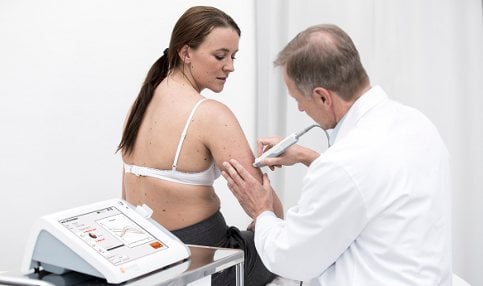The new system, called Nevisense, measures the electric resistance of moles and spots on the skin to determine whether or not they are cancerous.
"By gathering and analyzing precise electrical measurements in the epidermis and dermis," the Nevisense website states, "it provides reliable information unavailable through any other method."
A non-invasive tool tested in clinics across Europe and the US, Nevisense can identify malignant melanoma, catching up to 97 percent of malignant lesions and 100 percent of other forms of skin cancer during trials. The study consisted of a total of 1,951 people with 2,416 potentially cancerous lesions.
With efficacy proven and trials completed, Karlskroga Hospital in Örebro, central Sweden, became the first hospital to offer examinations using Nevisense on Tuesday.
"Tumour cells are more irregularly distributed and therefore give off a different electrical fluctuation," Mikael Tarstedt, doctor at the hospital, told local paper Nya Wermlands-Tidningen.
The system has been developed by Swedish institution SciBase AB, and the study was validated by the British Journal of Dermatology in June. Nevisense is the result of 20 years of research at both SciBase and the Karolinska Institute of Stockholm.


 Please whitelist us to continue reading.
Please whitelist us to continue reading.
Member comments